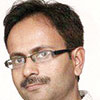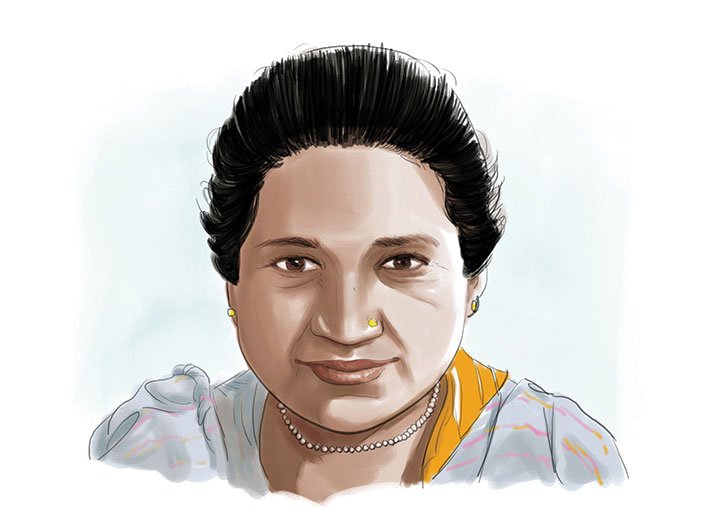In opposing triple talaq, Shayara Bano aims higher than Shah Bano: she questions constitutional validity of discriminatory practices sanctioned under Muslim personal law
The Shayara Bano case has placed the Muslim personal law under the judicial scanner yet again. The supreme court is set to examine triple talaq, polygamy and other discriminatory practices against women on the touchstone of the fundamental rights guaranteed under the constitution.
Though there have been petitions in the past pointing to the need for reform, Shayara’s petition has upped the ante by questioning the discriminatory practices as onslaught on her constitutionally-guaranteed rights which the court was bound to protect. With the revolt from within against the Shariyat-based system, it might not be easy for orthodox groups to cut short the debate by justifying personal law pointing to the rights of minorities or freedom of religion.
Over 30 years ago, Shah Bano had shown the way by invoking the criminal law (section 125 CrPC) for interim maintenance which made no distinction on ground of religion. The personal law had to bend to give way to the statutory right meant for women unable to make a living. While Shah Bano gave an option to walk past the confines of personal law, Shayara Bano case aims higher. It has created a flutter by questioning the constitutional validity of the discriminatory practices sanctioned under the Muslim personal law.
The All India Muslim Personal Law Board and Jamiat Ulama-i-Hind have already intervened in the matter. With the board and the Jamiat claiming the practices were protected under Article 25 which guaranteed the freedom of religion, the court will have to consider the scope and ambit of the freedom in the light of the competing right of an individual’s fundamental right to equality, right against discrimination, right to live with human dignity and also the freedom of religion.
With most petitions in the past focusing on or seeking judicial intervention for reform which often meant uniform civil code, the debate in court generally got cut short or remained inconclusive with Article 25 specifically empowering the government to usher in reforms. The personal law thus withstood the challenges with the court either refraining from going into the realm of policy-making or stopping short of issuing binding directions by asking the government to consider feasibility of uniform civil code.
In some cases where the court could intervene, it didn’t. A PIL by Ahmedabad Women Action Group (AWAG) challenging the constitutional validity of triple talaq, bigamy, etc. was dismissed by the supreme court in 1997 without considering it on merit. The court said the matter involved “issues of state policies with which the court will not ordinarily have any concern”.
In fact, Jamiat Ulama-i-Hind has cited the AWAG case to impress upon the court not to intervene in such matters. This, however, should not affect Shayara’s case at least for two reasons. One, there was probably no victim or affected party who had approached the court for relief in the above mentioned case. Two, the case was not decided on merit.
Jamiat has also cited a number of other cases where the court did not go into the validity of personal laws on the ground that the government was specifically empowered to usher in reforms.
The court, however, has not hesitated to uphold reforms initiated by the government. Shayara’s case gains strength from a number of judgments in the recent past where the court has held that practices permitted or not prohibited by a religion do not become a religious practice or a positive tenet of the religion which alone is protected under Article 25. In this regard, the supreme court has upheld service rules prohibiting bigamy and has even approved removal of Muslim government servants for having two wives in violation of the rules.
Shayara’s petition does not digress into the need for reform or uniform civil code (issues from which the court has tried to keep itself away) but focuses on enforcement of her fundamental rights. She has specifically challenged the constitutional validity of a pre-constitution law – Muslim Personal Law (Shariat) Application Act, 1937 – which had made triple talaq and other provisions applicable to Muslims in India.
Though the controversy over the practices being derogatory to women has always been there, neither the discriminatory practices nor the 1937 Act have been seriously tested for consistency with the rights guaranteed under Articles 14, 15, 21 and 25 of the constitution.
Article 25, which is often cited while requesting courts not to interfere with practices sanctioned by the personal law, is subject to other fundamental rights. This means, the right to equality, the right to live with human dignity, etc. should override in case of a conflict with freedom of religion.
Though courts have shown reluctance, personal law was never sought to be immune from judicial scrutiny. In fact, an amendment seeking to insert in the fundamental rights chapter the freedom to follow personal law was specifically rejected by the constituent assembly after a debate.
“I should like to say this that, if such a saving clause was introduced into the constitution, it would disable the legislatures in India from enacting any social measure whatsoever. The religious conceptions in this country are so vast that they cover every aspect of life, from birth to death. There is nothing which is not religion and if personal law is to be saved, I am sure about it that in social matters we will come to a standstill. I do not think it is possible to accept a position of that sort,” Dr BR Ambedkar said in the constituent assembly on December 2, 1948.
Thus, the Muslim Personal Law (Shariat) Application Act, 1937, which Shayara has challenged, is without any doubt open to scrutiny over alleged violation of fundamental rights. Article 13(1) declares as void provisions in pre-constitutional laws inconsistent with any of the fundamental rights guaranteed under the constitution. And Article 32 allows a person to directly approach the supreme court against any violation of fundamental rights. With Article 32 itself a fundamental right, it imposes a corresponding duty on the court to interfere if a case of infringement of fundament rights is made out.
True, Article 25(2) permits the government to usher in reforms but this should not be seen as a sanction to practices which are violative of fundamental rights. Neither should this be a ground for judiciary to forego its duty to ensure protection of fundamental rights of citizens.
Dr Ambedkar was against any protection to practices in conflict with fundamental rights. “After all, what are we having this liberty for? We are having this liberty in order to reform our social system, which is so full of inequities, so full of inequalities, discriminations and other things, which conflict with our fundamental rights,” he said, while rejecting the demand for a fundamental right status to personal laws.
Shayara has primarily challenged the practices as violative of her fundamental right to equality, right against discrimination and against her right to live a dignified life. She has pointed to discrimination against Muslim women by pointing out that polygamy was abolished through law amongst Christians in 1872, Parsis in 1936 and amongst Hindus, Buddhists, Sikhs and Jains in 1955.
Undoubtedly, reforms in other religions had been ushered in through legislative intervention but judicial interpretation can at times do the job better. While speaking on powers and responsibilities of supreme court judges in the constituent assembly in September 1949, Ananthasayanam Ayyangar said: “If the courts can help by way of interpretation, many things can be done, many revolutions could take place without people noticing them, and progress can be achieved without the legislature embarking on any legislation. I am sure that the future judges of the supreme court, when it comes into being, will certainly rise to the occasion.”
Singh is a Delhi-based lawyer
(The column appears in the May 16-31, 2016 issue of Governance Now)

